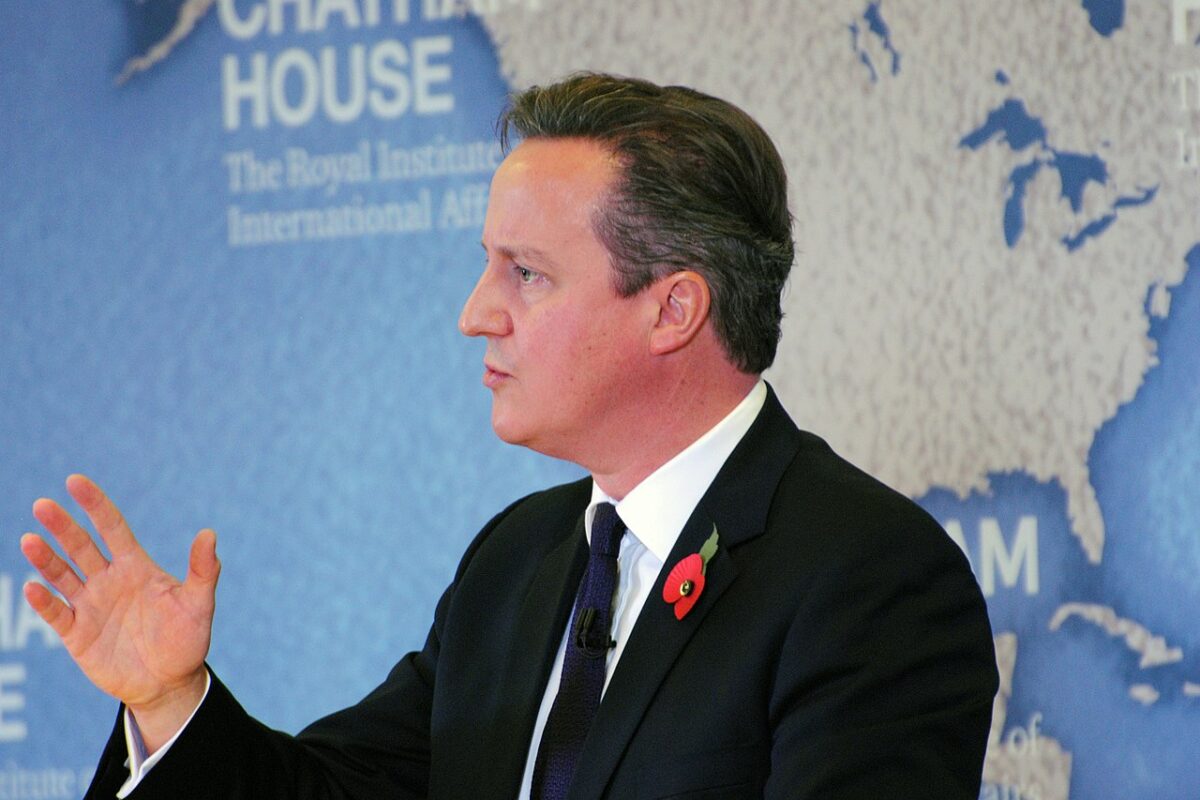The Dark Side of the Prime Minister’s Miracle
Economic Upswing?
Since the International Monetary Fund (IMF) ditched its one-size-fits-all approach, the economic guidelines dispensed by the organisation have become rather vague. On a visit to Britain, IMF Managing Director Christine Lagarde on Thursday surprised friend and foe as she lavishly praised British Prime-Minister David Cameron for his ‘eloquent and convincing’ economic leadership. “The British economic recovery is exactly the sort of result we like to see replicated elsewhere,” concluded Ms Lagarde.
As CFIPress.com reported yesterday, British economic revival is largely powered by deficit spending. The country’s current account is ballooning. Usually, current accounts dip into the red at the very end of an economic boom such as happened with Britain in 1973 and 1988. However, the current upswing is barely eighteen months old and much more modest than previously assumed. The annualised growth rate was adjusted downward in December from 3% to 2.6%.
Numbers from the Office of National Statistics (ONS) show that growth is largely consumer-driven. In Q3 2014, the latest quarter for which data is available, consumer spending rose by 0.9% on the quarter, though real household income dropped by 0.1%. While GDP per head rose 0.6% over the quarter, it was still 1.8% short of its pre-crisis level. Net national disposable income – an alternative measure of wellbeing – remained flat at 5.6% below its pre-recession peak.
The UK’s net international investment position (NIIP) – reflecting the value and composition of external assets and liabilities – has deteriorated as well. The UK is now a debtor nation with liabilities amounting to £180 billion (2013). It is, in fact, one of the most indebted nations of the world. Public and private debt amounts to about £5 trillion and stands at 340% of GDP. More worryingly, externally financed debt rose to fully 400% of GDP. Most of the debt sits with the banking sector, raising fears of an ‘Iceland scenario’ whereby the government is forced to step in and goes broke overnight.
A negative NIIP creates a drag on the current account. This is offset by Britain’s continued ability to attract financing and investments at record-low rates, resulting in a positive income balance. An interesting, and rather gloomy, report by Hinde Capital – a hedge fund specialised in precious metals – questions the UK’s long-term ability to maintain this imbalance. According to the analysts at Hinde Capital, it will be the unwinding of the imbalance between, on the one hand a negative NIIP and a persistent current account deficit, and on the other a positive income balance, that will cause stress.
In a word: the much-touted economic miracle unfolding in the UK is considerably less impressive than it is trumped up to be. It certainly does not offer a model for the rest of Europe to follow.
But this is not so much about the travails of the UK economy, as it is about the apparent fickleness displayed if not by Ms Lagarde then certainly by the organisation she manages. After imposing harsh austerity on all who dared approach the IMF for assistance, Ms Lagarde now hails to one European country borrowing its way to growth.
While the Greek, Spanish, and Portuguese tighten their belts to facilitate internal devaluation and thus gain a competitive edge that allows them to pay their dues, Ms Lagarde merrily goes about handing bouquets to those who thrive on borrowed money and time.
In all fairness, the IMF is actively trying to shed its long-established reputation as a stern fiscal disciplinarian in order to return to the fund’s Keynesian / Global New Deal roots. That would at least explain Ms Lagarde’s otherwise out-of-character behaviour in London.
Cover photo: UK Prime Minister David Cameron.
© 2015 Photo by Chatham House


